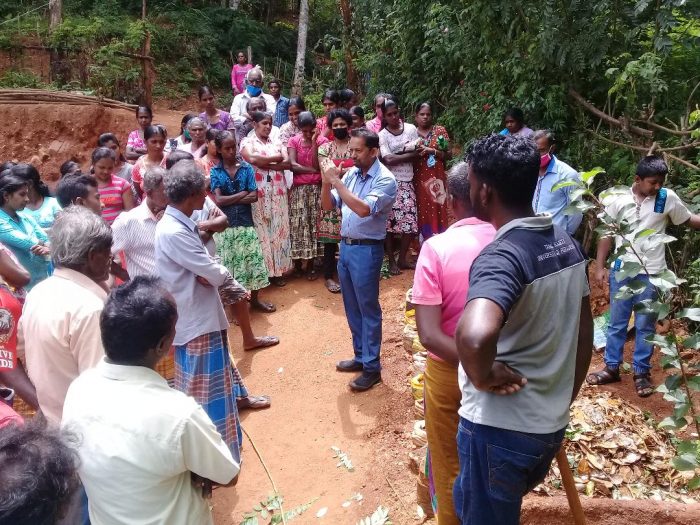Covid 19, Mental Health and Home Gardening

Even without Curfews and not been “locked in” any more, Covid 19 continues to be very much a part of our existence. This has stunted social interaction, brought with it separation, cabin fever and preoccupation about the future.
Lethargy, depression, a loss of con. centration, lack of patience, excessive craving for food, no motivation, listlessness and drowsiness throughout the day results, generally, in an aura of hopelessness. In extreme cases, family members snap at each other leading sometimes even to violence and break up of marriages. Consumption of drugs and alcohol has noticeably increased.
The prevailing mental stress is compounded by the fallout of the economic crisis. Many a person has lost his livelihood. Hanging over the population is also the fear that by the end of this year, food would become scarce, as forecast by the World Food Program.
Nest has during the last 33 years worked as a Community Based Organization with Mental Health as the ruler. It has considerable hands on experience and a large network of contacts. With the onset of Covid 19 Nest earmarked its role, namely to intensify its existing programs and to rejuvenate a program of Home Gardening, as a form of therapy for the community.
Nest has worked on home gardening * as the General Manager, Priyantha
Gunasinghe, had in the past initiated similar programs with communities around the country. In fact, on the basis of this experience, he had authored a booklet to guide communities in Home Gardening.
The current Nest Home Garden program is in two areas, namely, in Udu Dumbara in the Kandy district and in the Gampaha district. Over 380 households have been identified in Ududumbara and 70 in the Gampaha district. The participants are from households with whom Nest has interacted within the activities of the Community Health program. There is, therefore, a common culture and understanding between the participants and the Nest Community Health Workers.
A leading seed merchant supported the Nest plan by selling seeds at a discounted price which were then put into packets by the residents of the two Centres.
The first step in the program has been a training for making compost and other aspects of planting.
Each household commenced a program of planting Gliricidia on their fences because Gliricidia leaves provide base material for soil conditioners, pesticides and fungicides. Gliricidia is a nitrogen fixing plant and reduces the importance of artificial fertilizers. The harvested branches are sold as
bio fuel.
Every household has also been encouraged to grow one Jak tree on their land or in community lands, if there is adequate space. It is proposed to undertake Bee Keeping wherev er possible.
The Nest program is based on four pillars:
- to help oneself
- to help neighbours
- to help the community
- to sustain Nest so that the continuity of this program is ensured and work expanded.
From past experience we have found the following examples of how home gardening helps in the mental health of the community:
- Caring and nurturing plants and watching them grow and thrive gives individuals a wonderful sense of purpose and pride.
- Gardening is a physical exercise which among other positive effects releases endorphins which bring a feeling of wellbeing. Plants also release oxygen which helps the gardener’s body and brain to function better.
- The hidden creative qualities of an individual is given an opportunity to be liberated
- Humans are instinctively at ease and are relaxed within a natural environment.
- Home gardening has two functions: One is the economic advantage which may bring with it. Secondly, being a hobby, makes it into an activity for relaxation and fun.
- Home gardening also gets one into the activities of the community by sharing vegetables during the harvests. Through this the community spirit will grow
- Organically home grown vegeta- a bles are fresh and healthy. The home grown vegetables will be a saving for the household and the excess can be sold to the community
